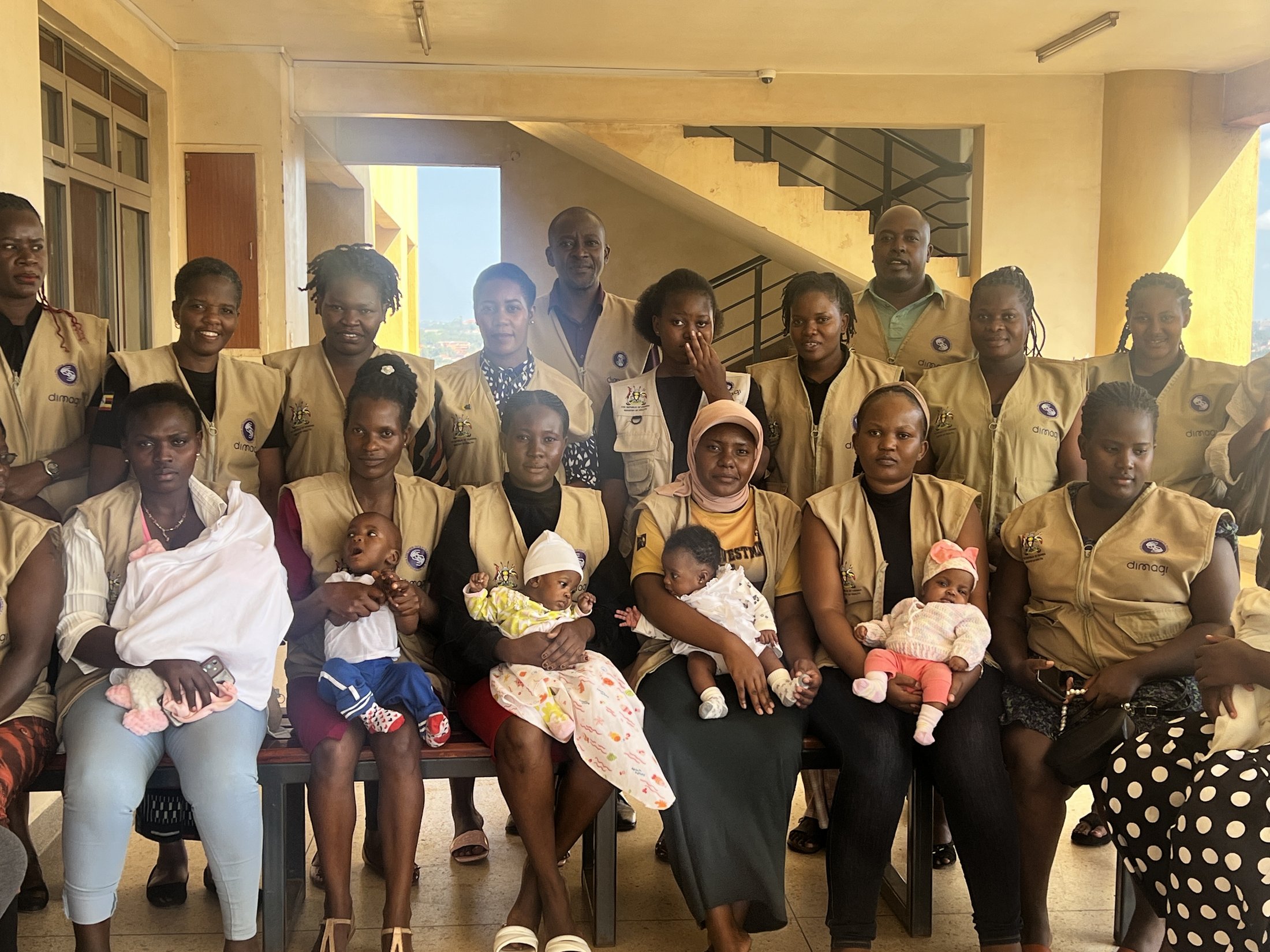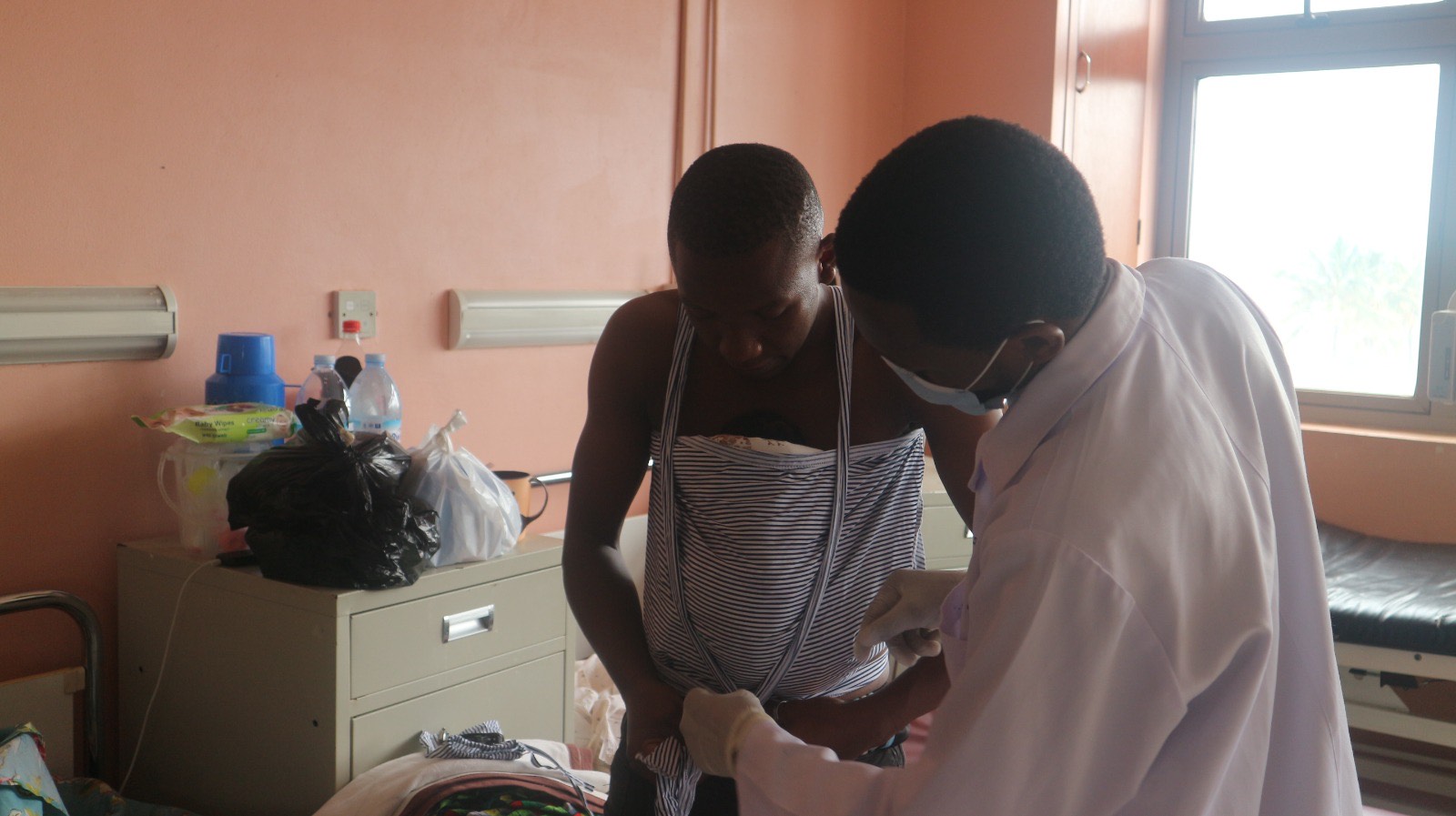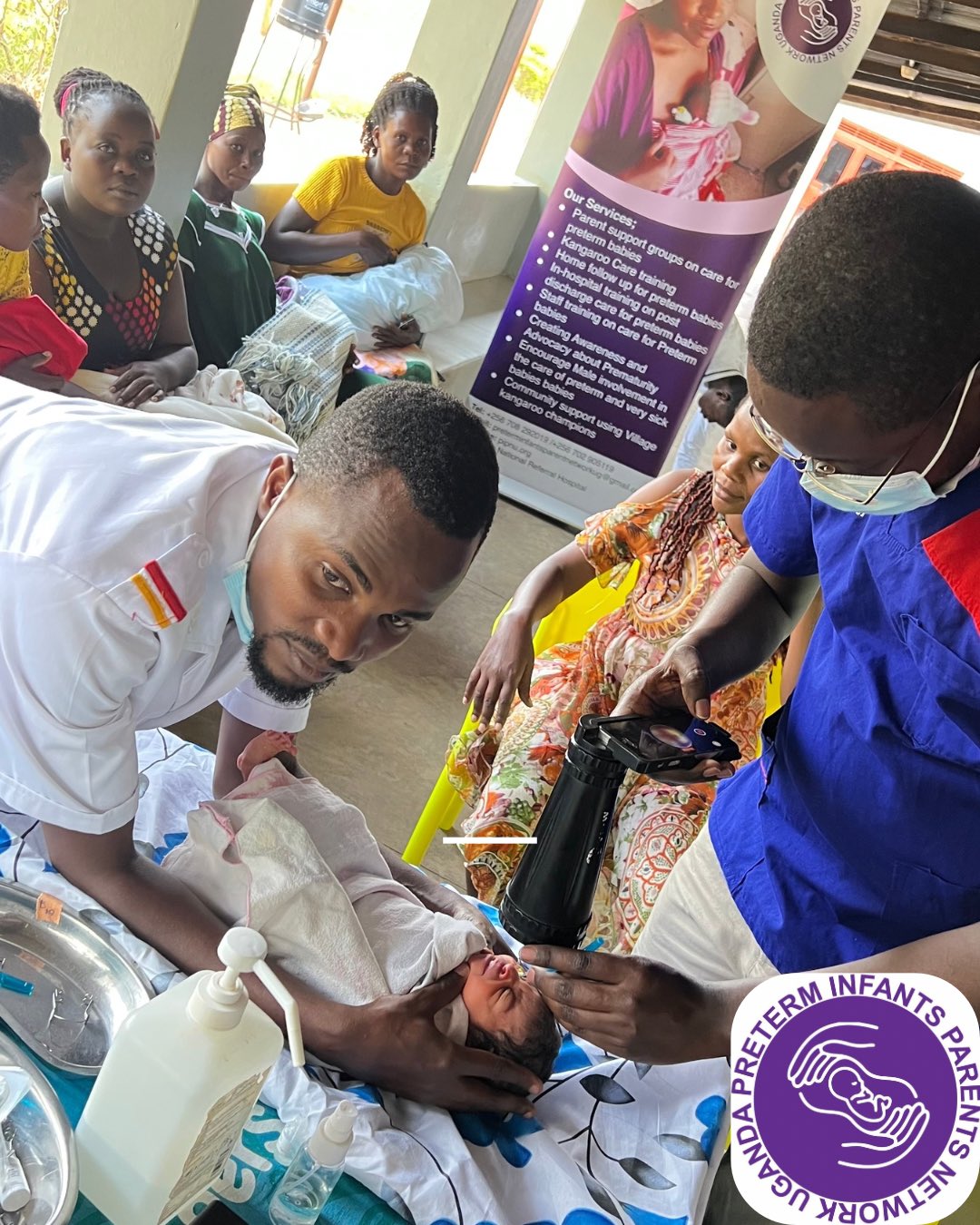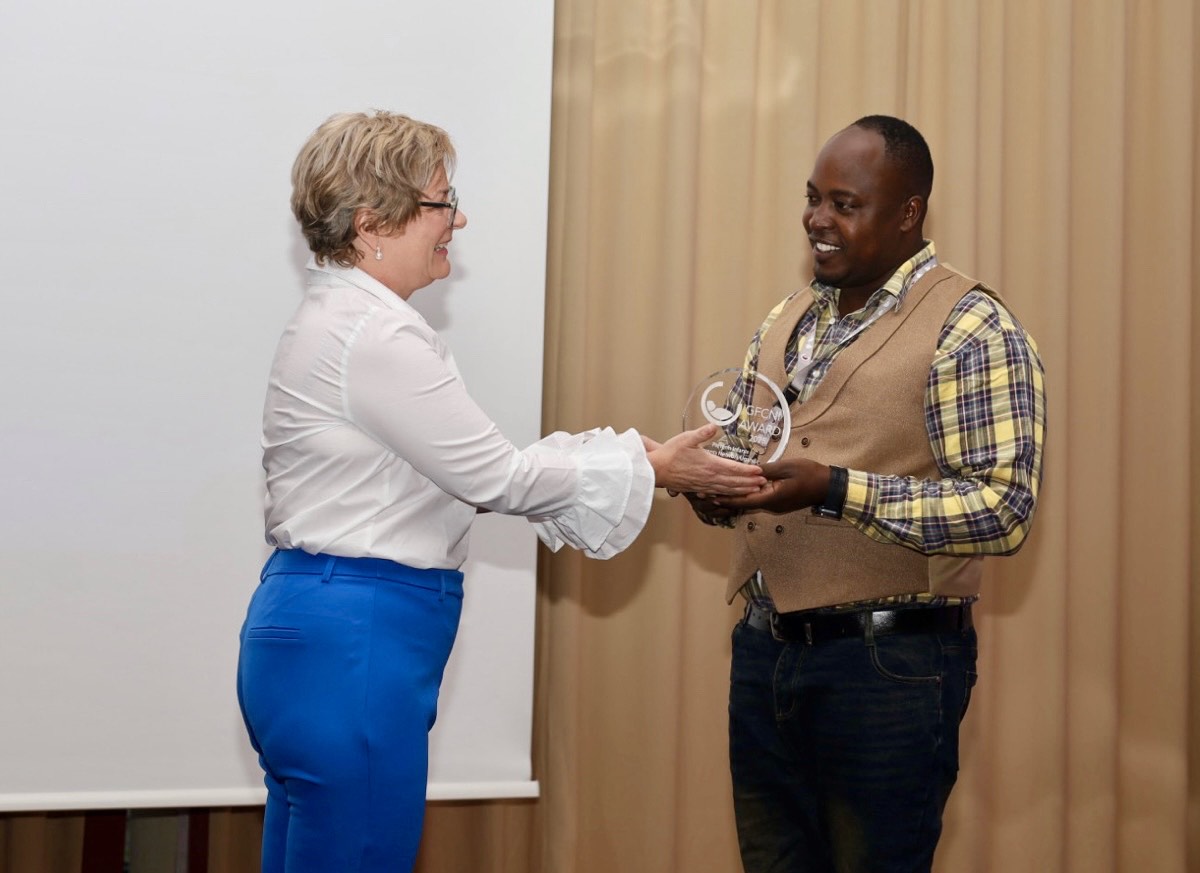Pregnancy Complications
Infant- and Family-Centered Developmental Care
Respiratory Infections
Neonatal Eye Health
Hygiene
Rare Diseases
Since its founding in 2022, the Preterm Infants Parents Network Uganda (PIPNU) has emerged as a transformative force in maternal and neonatal health across the country. Rooted in a parent-led, community-based approach, PIPNU works to reduce the complications of preterm birth through education, psychosocial support, and healthcare system strengthening. Its impact spans both urban and rural communities, with programs that reach families before, during, and after their time in the Neonatal Intensive Care Unit (NICU). The organization operates within all regional referral hospitals and has become a national voice for family-centered neonatal care in Uganda.

Central to PIPNU’s mission is the Village Kangaroo Care Ambassadors Program – a nationwide initiative that trains local volunteers to educate and support families on the benefits of Kangaroo Mother Care (KMC). This method, which emphasizes continuous skin-to-skin contact, has been proven to significantly improve outcomes for preterm infants by regulating body temperature, stabilizing heart and respiratory rates, promoting breastfeeding, and enhancing parent–child bonding. PIPNU’s ambassadors have reached over 5,000 families, many in hard-to-reach areas, empowering them with the skills and confidence to care for their fragile newborns at home and in hospital settings. These trained volunteers bridge a crucial gap between medical professionals and communities, ensuring that the benefits of KMC are accessible and sustainable at the grassroots level.
In Uganda, where the experience of having a baby in the NICU is often marked by fear, uncertainty, and isolation, PIPNU has created Walls of Hope in several hospitals. These physical spaces are adorned with affirming messages, photographs, and family testimonials that offer emotional support to parents during a difficult time. Beyond aesthetics, these walls serve as rallying points for peer connection and information sharing, offering a visible sign that parents are not alone. They also act as a gentle advocacy tool within hospitals, reinforcing the importance of compassion and communication in clinical settings.

Recognizing the shock many families face when a baby arrives too soon, PIPNU places strong emphasis on pre-NICU counseling and education. Their outreach teams work with pregnant women identified at risk of preterm labor to provide guidance on what to expect during a NICU stay, thereby reducing anxiety and enhancing parental readiness. Inside hospitals, PIPNU facilitates structured sessions on lactation techniques, hygiene practices, and infection prevention – all critical areas for the survival of preterm infants. These efforts are complemented by community follow-up programs that ensure families continue receiving support after discharge, reducing rehospitalization rates and improving long-term outcomes.

Retinopathy of prematurity (ROP) is one of the leading causes of preventable blindness in premature infants, yet access to screening remains limited in many parts of Uganda. PIPNU has addressed this gap by offering free ROP screening services, enabling early detection and timely intervention. These screenings are often conducted in partnership with hospitals and ophthalmologists and are accompanied by educational sessions to raise awareness among both healthcare providers and parents. By integrating ROP screening into its broader neonatal care model, PIPNU is helping to safeguard not only survival but also the quality of life for preterm babies.
The experience of preterm birth often triggers intense emotional stress, particularly in environments with limited psychosocial support. PIPNU’s peer support groups create safe spaces where parents can share experiences, access mental health resources, and receive guidance from others who have walked the same path. The organization also facilitates specialized bereavement counseling for families who suffer the loss of a newborn, helping them navigate grief in culturally sensitive ways. Moreover, PIPNU actively promotes male involvement in newborn care, challenging traditional norms and encouraging fathers to become equal partners in caregiving. These inclusive programs build resilience within families and foster stronger outcomes for both parents and infants.
Beyond clinical care, PIPNU addresses the broader social determinants of health through initiatives that combine nutritional support with economic empowerment. One standout example is their low-cost baby oatmeal initiative, a locally run enterprise that provides affordable, nutritious food for preterm infants while generating income for participating families. This program not only improves dietary outcomes for vulnerable babies but also strengthens household resilience by creating livelihood opportunities. Mothers, in particular, are supported to become micro-entrepreneurs, producing and distributing the oatmeal within their communities. The initiative exemplifies how health and economic well-being can be advanced simultaneously through grassroots innovation.
In 2024, PIPNU launched Uganda’s first national preterm birth database – a pioneering effort to collect and analyze data on neonatal outcomes. The database allows healthcare providers and policymakers to track survival rates, identify risk factors, and allocate resources more effectively. As Mr. Kateregga, co-founder and Managing Director at PIPNU, puts it: “Without data, you can’t track progress or improve care.” This tool has already informed strategic decisions at hospital and national levels, underscoring PIPNU’s role not just as a service provider, but as a thought leader in neonatal care.
Driven by the belief that every preterm baby deserves a fighting chance, PIPNU continues to expand its reach across Uganda. The organization is currently working to scale its training programs, enhance healthcare worker capacity, and advocate for national policies that support family-centered neonatal care. Future goals include establishing regional training hubs, deepening partnerships with health ministries, and securing long-term funding for its most impactful initiatives. By staying rooted in community engagement and evidence-based practice, PIPNU is poised to shape the next generation of neonatal health in East Africa.

In recognition of its groundbreaking work, PIPNU received the 2025 GFCNI Award for Grassroots Family Support. While the award celebrates their accomplishments to date, it also reflects the potential for even greater impact through collaboration, innovation, and sustained community leadership. As PIPNU continues to advance care for Uganda’s tiniest citizens, their message is clear: families are not just recipients of care – they are essential drivers of change.
© 2025 GFCNI. All Rights Reserved.